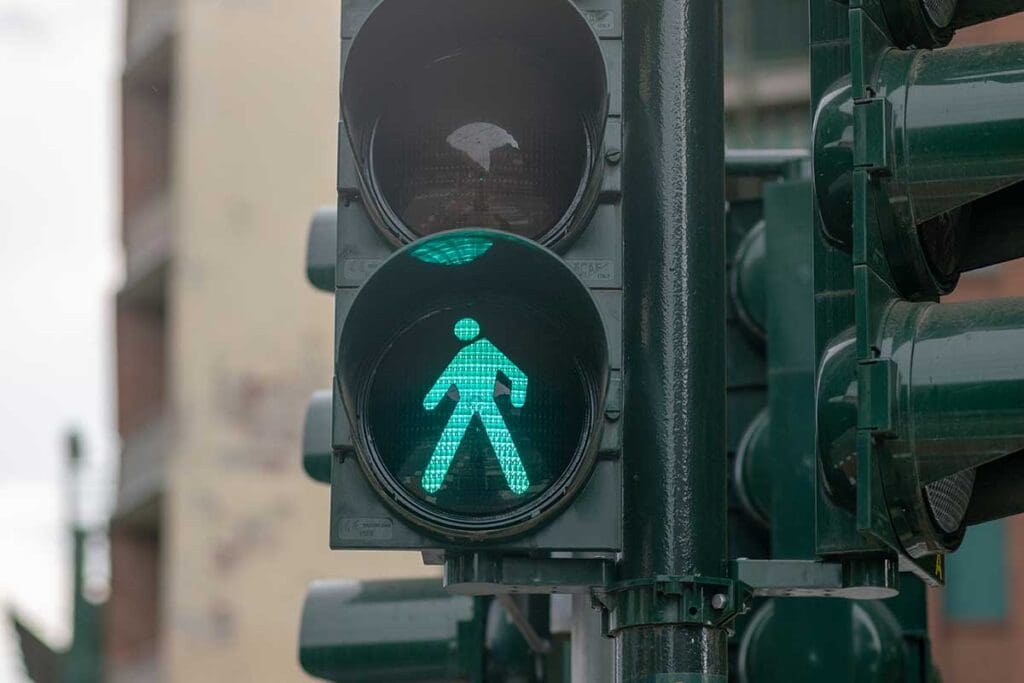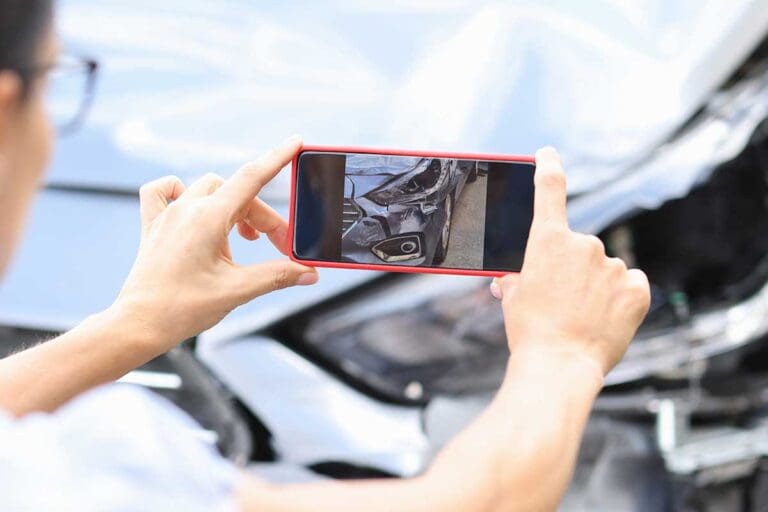Key Takeaways
Seek immediate medical attention, even if injuries seem minor.
Document the accident scene with photos and witness contact information.
File a police report to create an official record of the incident.
Avoid admitting fault or making statements to the driver’s insurance company.
Consult a personal injury attorney to protect your rights and pursue fair compensation.
1. Seek Immediate Medical Attention
Your health should always come first after a pedestrian accident. Even if you don’t feel seriously injured, some injuries, like internal bleeding or concussions, may not show symptoms right away.
- Call 911 or ask someone to call for medical assistance immediately.
- Allow paramedics to evaluate you at the scene and go to the emergency room if necessary.
- Follow up with your doctor for a thorough evaluation of any delayed symptoms.
Why it’s important: Medical records serve as evidence of your injuries and link them directly to the accident. Delaying treatment can not only harm your health but may weaken your claim.
2. Call the Police and File an Official Report
A police report creates an unbiased, official record of the accident, which is essential for proving fault and recovering damages.
- When officers arrive, provide them with accurate details about the accident.
- Stick to the facts—don’t speculate or admit fault.
- Request a copy of the police report or find out how to obtain it later.
Why it’s important: Insurance companies and courts rely on police reports to evaluate claims. If no report is filed, it becomes harder to prove what happened.
3. Document the Accident Scene
Evidence from the accident scene can play a key role in proving liability. If you’re physically able, take the following steps:
- Take Photos: Capture images of the scene, including the vehicle involved, traffic signals, crosswalks, and any visible injuries.
- Collect Witness Information: Get names and contact details for anyone who saw the accident. Witness statements can strengthen your case.
- Write Down Details: Note the time, location, weather conditions, and any actions leading up to the accident.
Why it’s important: Clear documentation can support your version of events and counter any disputes about fault.
4. Avoid Admitting Fault
After an accident, emotions run high, and it’s easy to say something that could be misinterpreted as an admission of guilt.
- Avoid apologizing to the driver or making statements like “I didn’t see the car.”
- Stick to factual details when speaking to the police or insurance companies.
Why it’s important: Any statements suggesting fault can be used against you to reduce or deny compensation.
5. Exchange Information with the Driver
Collect important details from the driver involved in the accident, including:
- Full name, contact number, and address.
- Driver’s license number.
- Vehicle make, model, and license plate number.
- Insurance provider and policy number.
Tip: If the driver refuses to cooperate, rely on the police to gather this information.
6. Notify Your Insurance Company
If you have auto insurance, your policy may include coverage for pedestrian accidents, such as uninsured/underinsured motorist protection.
- Contact your insurer promptly to report the incident.
- Avoid providing recorded statements or accepting fault until you consult an attorney.
Why it’s important: Prompt notification ensures your insurer can start processing any potential claims on your behalf.
7. Keep Records of Your Damages
Maintaining detailed records of the accident’s impact on your life is essential for calculating compensation. Document the following:
- Medical Expenses: Hospital bills, prescriptions, physical therapy costs, and future treatment estimates.
- Lost Wages: Time missed from work due to your injuries and recovery.
- Property Damage: Costs to repair or replace personal belongings like phones or clothing.
- Pain and Suffering: Keep a journal detailing the physical pain, emotional distress, and lifestyle changes caused by the accident.
Why it’s important: Comprehensive records ensure all damages—both economic and non-economic—are accounted for in your claim.
8. Be Cautious When Dealing with Insurance Companies
The driver’s insurance company may contact you to discuss the accident or offer a quick settlement. While this might seem convenient, proceed with caution:
- Do not provide recorded statements without legal guidance.
- Avoid accepting early settlement offers, as they may not fully cover your damages.
- Refer insurance adjusters to your attorney if you have one.
Why it’s important: Insurance companies aim to minimize payouts. A quick settlement may leave you without adequate compensation for medical bills or future care.
9. Consult a Personal Injury Attorney
Working with a personal injury attorney ensures your rights are protected and gives you the best chance of recovering fair compensation.
Here’s how an attorney can help:
- Investigate the accident and gather evidence to prove liability.
- Handle all communications with insurance companies to protect you from unfair tactics.
- Calculate the full value of your claim, including medical costs, lost wages, and pain and suffering.
- Represent you in court if a fair settlement cannot be reached.
Why it’s important: Legal representation allows you to focus on recovery while your attorney fights for the compensation you deserve.
10. Know Your Rights and Legal Deadlines
Every state has a statute of limitations for filing a personal injury claim. If you miss this deadline, you may lose your right to pursue compensation.
- Consult an attorney as soon as possible to understand the time limits in your state.
- Taking action early ensures evidence is preserved, witnesses remain available, and your case is stronger.
Why it’s important: Delaying your claim can harm your ability to recover damages, so act quickly to protect your rights.
Conclusion
Protecting your rights after a pedestrian accident requires quick and careful action. From seeking immediate medical attention to documenting the scene, every step you take can strengthen your case and ensure you receive the compensation you need to recover.
By consulting an experienced personal injury attorney, you can navigate the claims process with confidence and focus on what matters most—your health and well-being.



